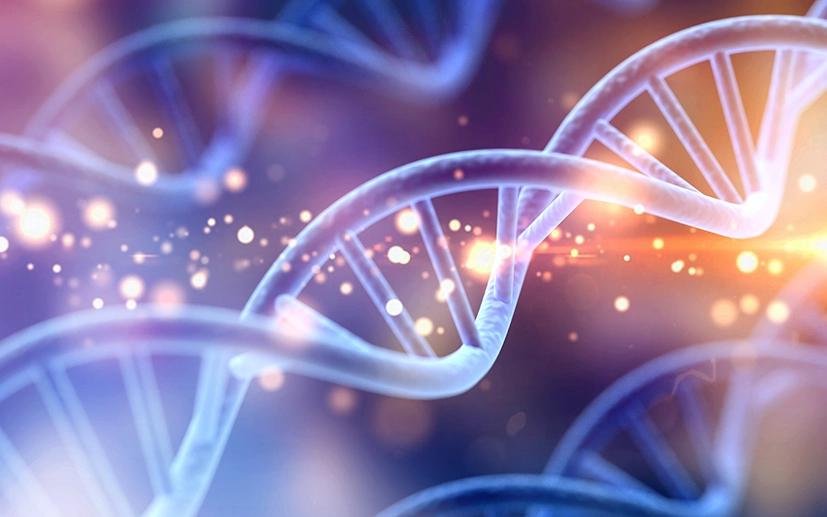
The Role of Genetics in Addiction
Addiction comes in many forms and can affect people of all ages and stages of life. Some people fall into it slowly, while it seems to hit others faster and more suddenly. Many factors contribute to addiction and how it develops in a person.
This includes their circumstances, their family and friends, lifestyle choices, and even genetics. That’s not to say genetics is always entirely to blame, but it can play a significant role. For some, it makes them more vulnerable and susceptible, especially when combined with other contributing factors within their life.
Read on to learn more about genetics and addiction and what it looks like to have a genetic predisposition to addiction.
Genes and Addiction
Your genetic makeup dictates a lot in your life, especially as it relates to your body and mind. In terms of addiction, genes contribute to several things:
- How your body reacts to and metabolizes substances like drugs and alcohol
- How well you’re able to resist desires and cravings
- How fast or easily you become addicted from excessive use or abuse of substances
- How you react to and deal with detoxing, withdrawal, and recovery
As such, your genetic code plays a large role in your entire journey with substances and addiction. Below are some specific ways in which you may have a stronger genetic predisposition to addiction:
- Certain genes contribute to the metabolism of alcohol. Depending on your levels of these genes, you may experience more uncomfortable symptoms from excessive consumption – serving to protect against regular abuse.
- Two genes known as GABRA2 and CHRM2 have been linked to AUD or alcohol use disorder. This is defined as an uncontrollable consumption of alcohol despite negative consequences. These genes seem to be associated with the early stages of alcoholism.
- The presence of certain genes can change the way you react to stress, which may impact whether or not an addiction develops.
- Low levels of a gene called CHRNA2 have been associated with excessive use of cannabis and marijuana addiction.
- One of the biggest factors in developing an addiction is the way excessive use and abuse of a substance changes the reward system in your brain. When you experience stronger hits of dopamine as a result of doing something, you’ll seek it out more often. There are different variations of the dopamine receptor gene which can affect the way substances influence this reward system in the brain – thus either facilitating or helping prevent addiction from developing.
- Certain genes leave some people up to twice as likely to become dependent on nicotine.
- Genes that create a certain protein may make people more sensitive to the use of cocaine if they have lower levels of said protein.
These are just a few of the ways specific genes and their functions can affect the way you may or may not react to substances and/or how likely you are to rely on them. Of course, there’s no way to determine your exact genetic makeup without some testing.
But, this knowledge is the result of many tests on people and animals and they help us understand how genes and individual genetic codes play such a large role.
That being said, certain behaviours can point to certain genetic influences and vulnerabilities. For example, those who are more impulsive and willing to take risks may be at a higher risk for addiction, as are those who struggle with anxiety and/or depression. Additionally, those who drink to cope with problems may be more likely to develop a dependence than those who only drink socially.

Genes and Other Factors
While genetic dispositions like the ones mentioned above are out of your control, it doesn’t automatically guarantee you will or won’t become addicted. There are other factors to consider, many of which influence your path just as strongly, even working together with your genes.
These factors include:
- Family. If you grew up with alcoholic parents, for example, you may be more vulnerable to addiction yourself. It also means you have easier access, and may automatically see it as a way to cope, have fun, etc.
- If you’re spending lots of time socializing with those who frequently use drugs, you may be more open to trying and abusing them yourself. You’re also likely able to obtain them more often, and may even feel pressure to use them.
- Mental Health. Mental health also has a genetic factor, but if you’re struggling with things like depression, anxiety, BPD, or anything else, you may be more vulnerable to substance abuse and addiction. This is because substance use can help temporarily relieve stress and other symptoms, among other reasons. Mental health issues and substance abuse so often go hand-in-hand that there are several forms of therapy and treatment dedicated to addressing both at once.
- Everyone deals with stress to some extent – it’s virtually unavoidable. However, excessive, frequent, and high levels of stress will eventually harm your health. It also leaves you that much more vulnerable to substance abuse and addiction, especially as a way to cope.
These things will be a factor for everyone, but they’re often pushed further with a stronger genetic predisposition to addiction. For example, someone going through a highly stressful time in their life may be tempted to use substances to help them cope.
However, in doing so, the way their body physically reacts may dissuade them from abusing said substance long-term. Alternately, someone with a more vulnerable genetic makeup may be in the same situation, but their body and brain react differently, causing them to become dependent more quickly.
Get Help Today
All of this combined is why it’s crucial to identify and treat addiction in the earliest stage possible. At Lily Recovery, we offer gentle and compassionate treatment for women, by a women-only team in a small and private facility. We’re open to all women and allow anyone who needs help to self-refer for the simplest admission process possible.
Understanding the effects your genetics can have on your addiction journey can help in identifying issues and recognizing what your weaknesses may be. However, no one is completely immune.
If you’re at all concerned about yourself or a loved one, please don’t hesitate to reach out. Our qualified and professional staff will answer any questions and offer as much guidance as they can.



